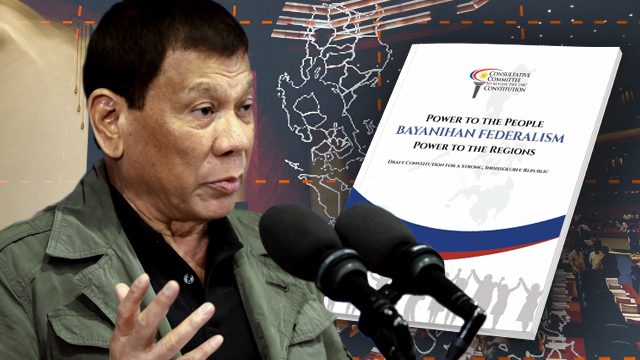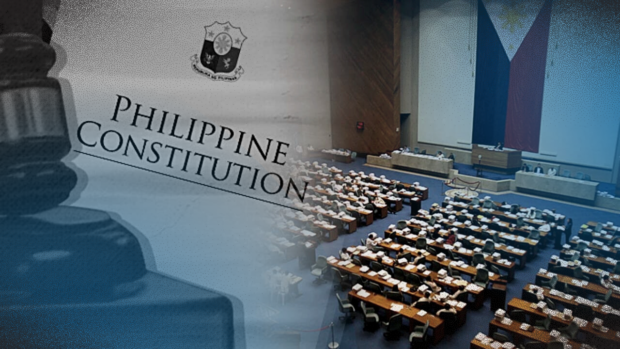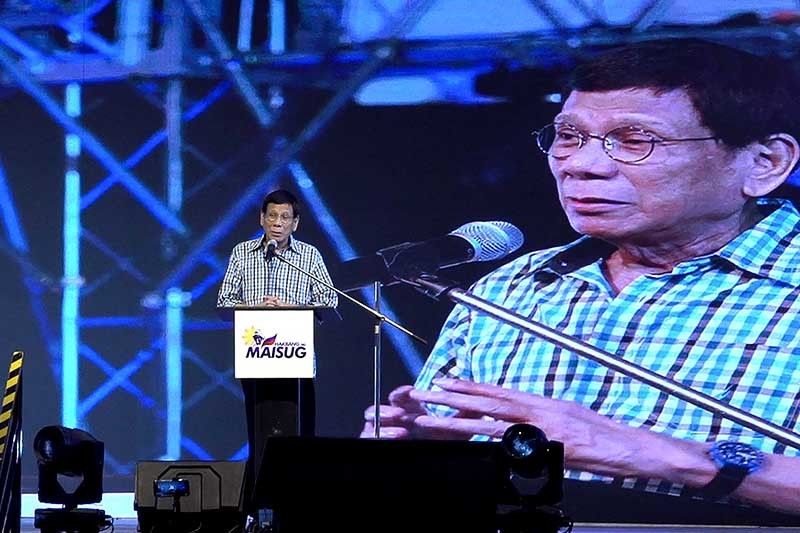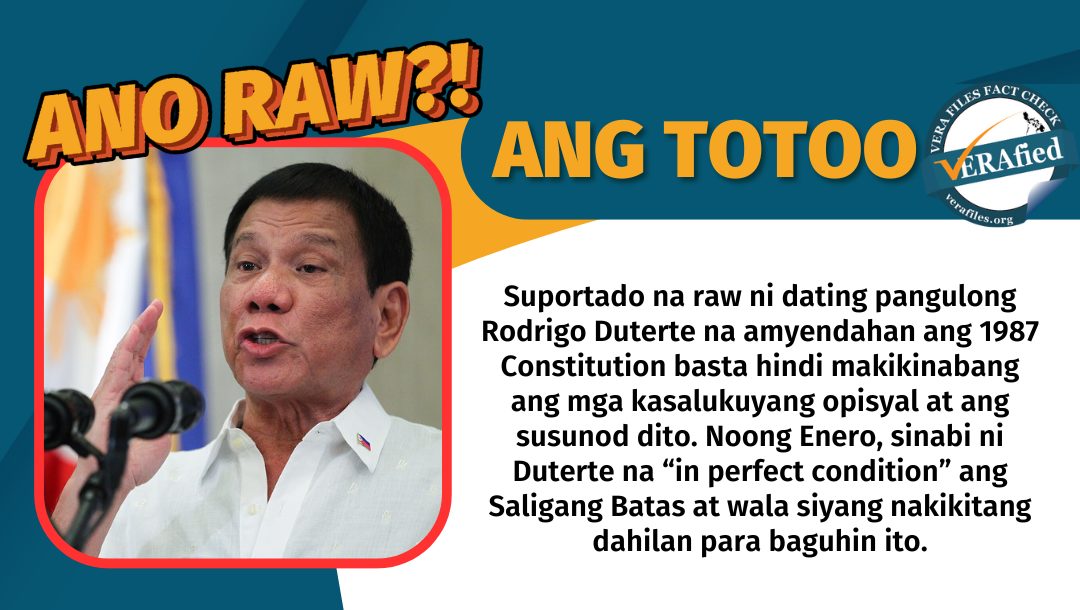The Duterte Constitution Change Push: A Deep Dive into the Proposed Constitutional Amendments
Associated Articles: The Duterte Constitution Change Push: A Deep Dive into the Proposed Constitutional Amendments
Introduction
With nice pleasure, we’ll discover the intriguing matter associated to The Duterte Constitution Change Push: A Deep Dive into the Proposed Constitutional Amendments. Let’s weave fascinating data and supply contemporary views to the readers.
Desk of Content material
The Duterte Constitution Change Push: A Deep Dive into the Proposed Constitutional Amendments

Rodrigo Duterte’s presidency within the Philippines (2016-2022) was marked by a big push for constitution change, a transfer that generated intense debate and controversy. Whereas in the end unsuccessful in attaining his desired constitutional amendments, the try itself revealed deep-seated political tensions and uncovered basic disagreements concerning the nation’s future governance. This text will delve into the specifics of Duterte’s proposed modifications, the arguments for and towards them, the political maneuvering concerned, and the lasting implications of this formidable endeavor.
Duterte’s Imaginative and prescient for Constitutional Reform:
Duterte’s main objective was to shift the Philippines from a predominantly presidential system to a parliamentary-federal system. This concerned a number of key proposed amendments:
-
Shift to a Parliamentary System: This was the core of Duterte’s proposed modifications. He advocated for a system the place the manager energy would reside in a Prime Minister, chosen by the legislature, fairly than a instantly elected President. The President would largely turn out to be a ceremonial figurehead. Proponents argued this is able to improve political stability by decreasing the focus of energy in a single particular person and fostering better collaboration between the manager and legislative branches.
-
Federalism: Duterte envisioned a federal system, dividing the nation into autonomous areas with vital devolved powers. This aimed to deal with long-standing regional inequalities and promote extra equitable distribution of assets. The proponents argued that this is able to empower native governments, resulting in improved governance and financial improvement in traditionally marginalized areas.
-
Financial Provisions: The proposed amendments additionally included provisions aimed toward attracting international funding and selling financial development. These typically concerned stress-free restrictions on international possession in sure sectors. The rationale was to stimulate financial exercise and create extra jobs.
Arguments in Favor of Constitution Change:
Supporters of Duterte’s proposed modifications introduced a number of arguments:
-
Addressing Regional Disparities: Proponents argued that federalism was essential to deal with the huge financial and developmental disparities between areas. They believed that better autonomy for native governments would allow them to higher cater to their particular wants and priorities.
-
Enhanced Political Stability: The shift to a parliamentary system was introduced as a method to scale back political gridlock and enhance governance. The argument was {that a} extra collaborative system would result in smoother policymaking and fewer political infighting.
-
Financial Progress: Stress-free restrictions on international possession was touted as a obligatory step to draw much-needed international funding, boosting financial development and creating employment alternatives.
-
Addressing Inefficiencies within the Presidential System: Critics of the prevailing presidential system pointed to its inherent weaknesses, together with the potential for government overreach and the problem of attaining consensus on vital coverage points. They argued {that a} parliamentary system may mitigate these points.
Arguments In opposition to Constitution Change:
Opponents of Duterte’s proposed modifications raised a number of severe considerations:
-
Danger of Authoritarianism: Critics feared that the shift to a parliamentary system may pave the way in which for authoritarian rule, notably given Duterte’s already controversial human rights file. They argued {that a} highly effective Prime Minister, doubtlessly beholden to the legislature, may simply circumvent checks and balances.
-
Weakening of Democratic Establishments: Considerations had been raised concerning the potential weakening of democratic establishments via the focus of energy in a doubtlessly much less accountable legislature. The concern was that this might result in decreased transparency and accountability.
-
Potential for Corruption: Opponents argued that the proposed amendments may exacerbate present corruption issues, notably within the context of devolved powers underneath federalism. They warned of the potential for elevated alternatives for graft and abuse of energy on the regional stage.
-
Lack of Public Session: Critics argued that the method lacked ample public session and engagement. They claimed that the proposed modifications had been being pushed via with out sufficient consideration of the views and considerations of the final inhabitants.
-
Unsure Financial Impacts: Whereas proponents claimed that financial liberalization would increase development, critics argued that the potential destructive penalties, resembling elevated international dominance in sure sectors, weren’t adequately thought of.
The Political Panorama and Challenges:
Duterte’s push for constitution change confronted vital hurdles:
-
Opposition from key political actors: A number of influential political figures and teams actively opposed the proposed amendments, creating a robust counterforce.
-
Lack of public help: Regardless of authorities efforts to advertise the modifications, public opinion remained divided, with appreciable skepticism and opposition.
-
Constitutional complexities: The method of amending the structure is complicated and requires supermajorities in each homes of Congress, making it tough to realize the mandatory consensus.
-
Timing and political priorities: The timing of Duterte’s push for constitution change coincided with different urgent political points, diverting consideration and assets.
The Aftermath and Lasting Implications:
Regardless of Duterte’s efforts, his proposed constitution change in the end did not materialize. Whereas the precise amendments didn’t go, the try left an enduring affect:
-
Publicity of Political Divides: The controversy highlighted deep-seated political divisions throughout the Philippines, exposing basic disagreements concerning the nation’s governance construction and future route.
-
Elevated Political Polarization: The constitution change debate additional polarized the political panorama, exacerbating present tensions between opposing factions.
-
Classes for Future Reform Efforts: The expertise supplied worthwhile classes concerning the complexities of constitutional reform, highlighting the significance of broad public session, consensus-building, and cautious consideration of potential penalties.
-
Continued Debate on Federalism: Whereas Duterte’s particular federalism proposal failed, the underlying debate about regional autonomy and equitable improvement continues to be a big matter of debate in Philippine politics.
In conclusion, the Duterte administration’s push for constitution change was a big occasion in Philippine political historical past. Whereas in the end unsuccessful in attaining its said objectives, it revealed profound divisions throughout the nation and highlighted the enduring challenges of constitutional reform. The controversy continues to form the political discourse, underscoring the necessity for cautious consideration and broad consensus-building in any future makes an attempt at vital constitutional change. The legacy of this formidable endeavor will undoubtedly proceed to affect Philippine politics for years to come back.





![[In This Economy] Stop using the PH economy as excuse for charter change](https://www.rappler.com/tachyon/2024/01/stop-economy-excuse-for-charter-change-January-26-2024.jpg)

Closure
Thus, we hope this text has supplied worthwhile insights into The Duterte Constitution Change Push: A Deep Dive into the Proposed Constitutional Amendments. We thanks for taking the time to learn this text. See you in our subsequent article!
